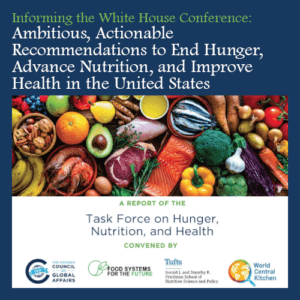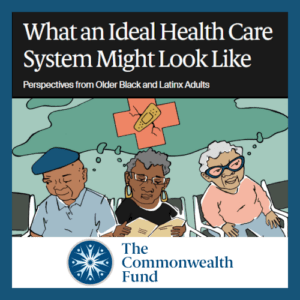Upcoming Events
Past Events
Latest Resources
Rhode Island’s Health Equity Zones: Rethinking Community Investing to Create Measurable, Sustainable Gains in Health Equity
In 2015 the Rhode Island Department of Health (RIDOH) launched a project called the Health Equity Zones (HEZ) initiative, with the goal of creating a new public health approach. Rather than prioritizing specific health outcomes, Rhode Island’s HEZ initiative was designed to shift investments upstream to improve the social, environmental, and economic determinants of health by intentionally investing in community infrastructure and resident empowerment. The HEZ initiative has grown over the past seven years to become an internationally recognized model for operationalizing health equity, and during that time we have learned a lot about the role of community investments and how our approach needs to be rethought if we are truly going to invest in health equity.
Centering Racial Justice to Address Climate Change: Learning What it Takes
In 2018, the Kresge Foundation launched the Climate Change, Health, and Equity (CCHE) initiative as a 5-year, $22 million commitment to accelerate action on climate change and climate-related inequities in health. Since its inception, the CCHE network has worked in distinct, yet aligned strategies that focus on health institutions, practitioner and professional societies, and community-based organizations. The priority was to bring together diverse grant-funded partners at different points along their equity journey, with initiative partners providing evaluation, technical assistance, and support to sustain the network.
Children’s Environmental Health Day: Actions Needed Now to Protect Our Children’s Health
It has been over a decade since the World Health Organization raised the alarm that chronic diseases—including cardiovascular, cancer, diabetes, obesity, and metabolic syndrome—are rapidly becoming an epidemic in developed nations, and increasingly, in developing nations. Escalating rates of neurocognitive, metabolic, autoimmune, and cardiovascular diseases cannot be solely attributed to lifestyle, genetics, and nutrition. Prenatal, early life, and ongoing exposures, along with bio-accumulative toxicants, are playing a large role in the increased incidence of chronic disease. In fact, we need only look at the statistics to see that chronic disease rates in children are on the rise, and this can often be linked to toxic exposures.
Task Force Releases Report to Inform White House Conference
Authored by the Task Force on Hunger, Nutrition, and Health, “Ambitious, Actionable Recommendations to End Hunger, Advance Nutrition, and Improve Health in the United States” offers policy recommendations and actions to advance the goals of the White House Conference on Hunger, Nutrition, and Health to end hunger, improve nutrition, and reduce diet-related diseases in the United States by 2030.
Achieving Racial Justice and Health Equity Through Housing Justice
Having a stable, safe, and affordable place to call home impacts our ability to be healthy. But because America’s foundational housing policies and systems intentionally excluded Black, Indigenous, and other people of color, far too many people in our nation are at risk of poorer health because a home is out of reach.
What an Ideal Health Care System Might Look Like: Perspectives from Older Black and Latinx Adults
A new research publication from The Commonwealth Fund, “What an Ideal Health Care System Might Look Like: Perspectives from Older Black and Latinx Adults,” examines what health care should do to better respect people’s identities, health needs, and preferences.
Reflecting on the Intersections Initiative
For organizations like the St. Joseph Community Partnership Fund (the Fund) and Prevention Institute (PI), GIH conferences have served as a critical space to bring together advocates across sectors and spark new ideas to address complex health issues. Inspired by a PI-led session on upstream prevention and health equity at GIH’s March 2016 annual conference, the Fund noted the promising landscape for a grantmaking initiative that could focus on root causes of poor health and dismantling systems of inequity, and a partnership was born.
Will We Hear the Voices of the LGBTQ Community?
Across the United States we are seeing a coordinated campaign to restrict lesbian, gay, bisexual, transgender, and queer (LGBTQ) rights and limit access to affirming, lifesaving health care. According to the Equality Federation, nearly 400 anti-LGBTQ bills were introduced across the country in 2021, and over 240 bills have already been filed in 2022. These policies directly impact the health and safety of members of the LGBTQ community. Recent data from The Trevor Project show that 66 percent of LGBTQ youth, including 85 percent of transgender and/or nonbinary youth, report that recent debates around state laws to restrict the rights of transgender people have negatively affected their mental health.
It’s Time to Converge on Narrative Change for Racial Justice and Health Equity
Philanthropy is increasingly embracing narrative change as a tool for building public and political will to advance equitable policies and structural change. Yet philanthropic narrative investments to advance racial justice and health equity are still relatively new and disparate. The work is often siloed, lessons and insights are not often shared across efforts, and there is also a wide range of definitions of narratives, perspectives, and approaches on how to shift them.
Connect With Funder Peers on Health Equity
Interested in exchanging strategies, information, and questions with your funder peers? Sign up for GIH E-Forums.
Strengthen your knowledge, skills, and capacity.
GIH focuses our programming around five areas that are critical to achieving better health for all.
We invite you to explore the resources available on our focus areas pages, browse content in more specific issue areas, and to connect with GIH staff to discuss how we can partner and support your work.









